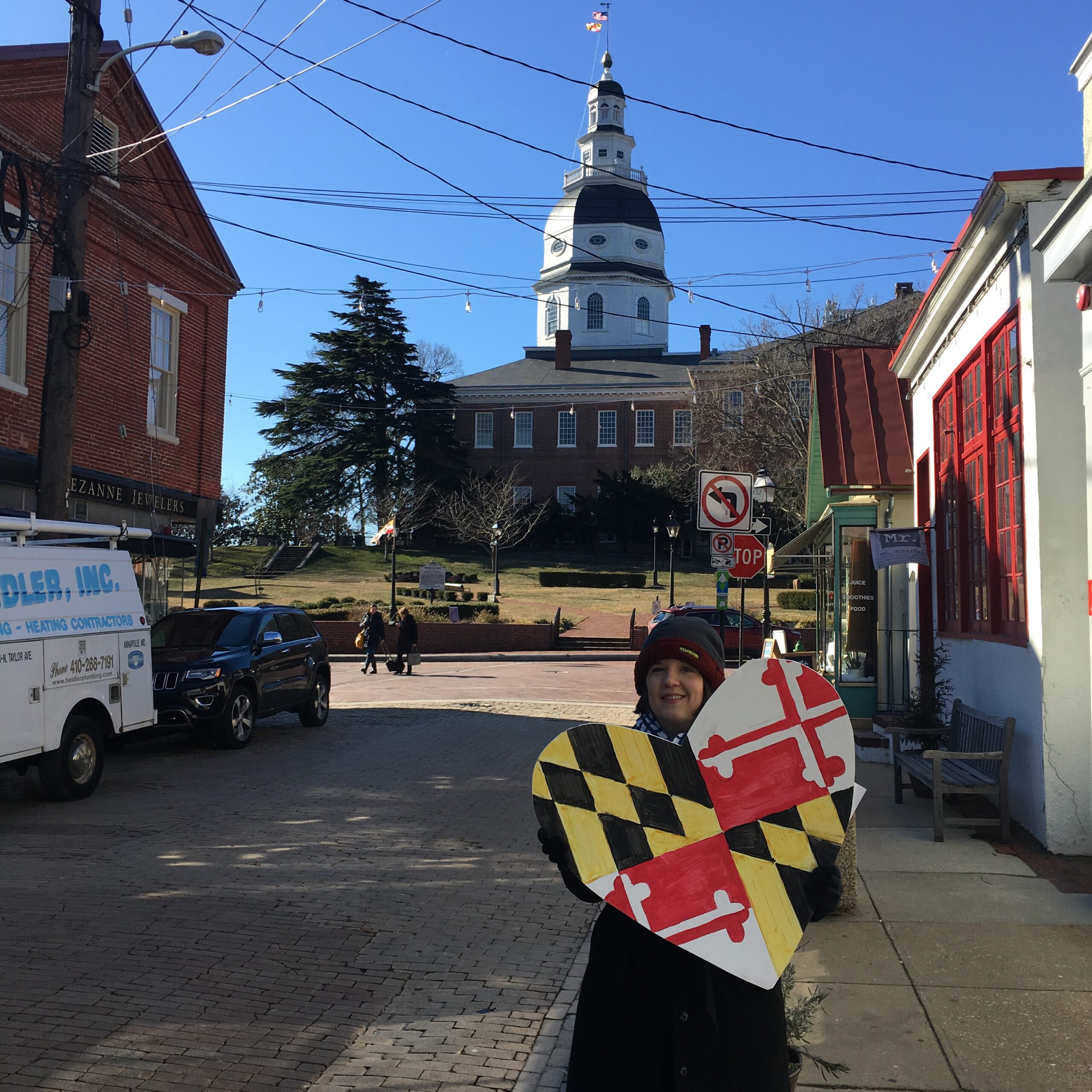Preservation Maryland championed important legislation at the local, state, and federal levels in the past year. These preservation and smart growth policies invested in our communities and helped provide more equitable, sustainable, and livable opportunities for Maryland residents. None of this would have been possible without our members. Your donations helped us keep our metaphorical boots on the ground during a year of virtual hearings and meetings. In the face of unprecedented challenges, your support ensured that we had one of our most successful years in advocating for the policies that protect the best of Maryland.
Help us continue this important work
2021 Advocacy Highlights
Federal Advocacy Success:

Partners from Conservation Legacy, The Campaign for Historic Trades and the National Parks Service at the Frederick Historic Preservation Training Center.
The Frederick Jobs and Historic Preservation Training Center Act:
Preservation Maryland helped author the legislation that will provide the National Park Service’s Historic Preservation Training Center the ability to acquire a roughly 10-acre tract of land from the City of Frederick to expand and build out a trades’ training campus to meet the growing preservation needs of the National Park Service and help train the next generation of historic tradespeople around the nation. The bill has been introduced in the Senate and has passed out of subcommittee in the House, something only about 1 in 4 bills does.
State Advocacy Successes:
- Small Commercial Program – State Historic Revitalization Tax Credit: Due to the overwhelming success of the Small Commercial Program of the state historic tax credit, it had run out of funding, having exhausted the initial $4M authorized amount. This legislation increased the program’s authorization by an additional $1M.
- Economic and Community Development – Income Tax Credit for Catalytic Revitalization Projects: In addition to creating a new tax credit incentivizing the reuse of historic government complexes, this bill mandates $12 million in minimum funding to the Large Commercial HTC for fiscal years 2023 and 2024, which encourages private investment in community revitalization projects across Maryland.
- Historic Revitalization Tax Credit – Certified Historic Structure and single-family, owner-occupied Residence-Definitions: Participants of the Department of Natural Resources’ Resident Curatorship program will now allow access to the residential historic tax credit.
- Highlights for Historic Preservation Funding:
- $600k for Maryland Historical Trust capital grants
- $300k for Maryland Historical Trust non-capital, survey & research grants
- $1M for Maryland Historical Trust African American Heritage grants
- $9 million for the state Historic Tax Credit large commercial program
- $6 million for the Maryland Heritage Area Authority
State Smart Growth Advocacy Successes:
- Southern Maryland Rapid Transit Program: HB414 requires the State to complete the NEPA study of the Southern Maryland Rapid Transit project. It will provide at least $5 million in matching state funds from the Transportation Trust Fund to do so, an essential step forward for the transit project and quality of life for Southern Maryland.
- Clean Energy Loan Program – Remediation and Resiliency: This legislation expands Maryland’s current clean energy loan program (MD C-PACE) to include resiliency, environmental remediation, and water efficiency projects, which will help alleviate some of the financial strain of projects like floodproofing.
- Transit Safety and Investment Act: This legislation mandates at least roughly $90 million additional to anticipated spending from the Transportation Trust Fund for six years to address transit “state of good repair” identified by the MTA. Although Governor Hogan vetoed this bill, the General Assembly voted to override that veto during a special session held in December.
- Tree Solutions Now Act of 2021: With the hard work of our colleagues and Preservation Maryland, the Senate made amendments to require the Hughes Center study on forest conservation practices be completed by December 31, 2023 and to grandfather existing forest mitigation banks. Additionally, it will result in the planting of 5 million trees by 2030, with 10% to be planted in underserved urban areas.
Budget Highlights for Open Space Funding:
Through the hard work of the Partners for Open Space, including Preservation Maryland, the FY22 Budget includes critical Program Open Space funding:
- Program Open Space – Stateside: $57.5 million
- Program Open Space – Local: $53.6 million
- Local Parks and Playground Shovel-Ready Projects – $85 million
- Rural Legacy: $20.1 million
- Maryland Agricultural Land Preservation Foundation: $49.2 million
- Pay-Back Funds for Critical Maintenance – $21.9 million

